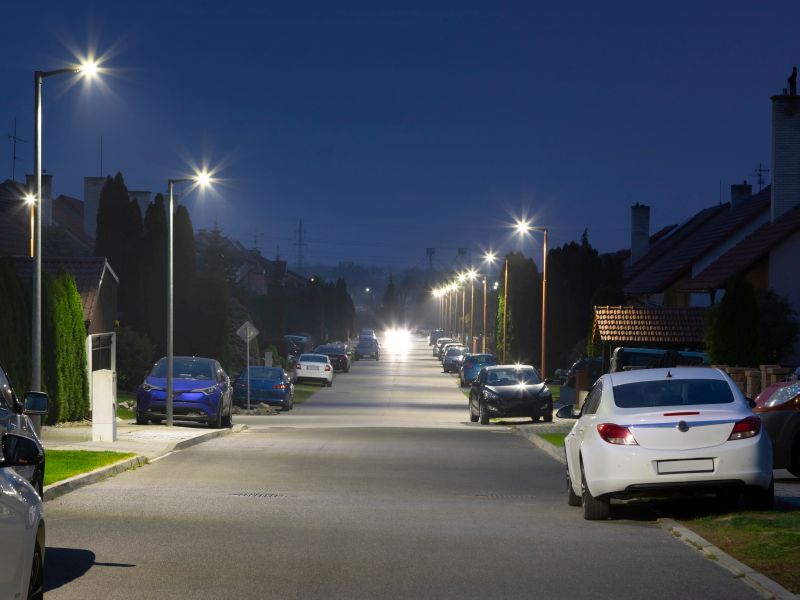Streetlights Could Be Harming Your Teen’s Sleep, Mental Health: Study

WEDNESDAY, July eight, 2020 (HealthDay News)
New research is suggesting hyperlinks concerning road lights, neon indicators and other types of nighttime outside the house lights and sleeplessness and temper diseases amid teens.
The research of extra than 10,000 American children aged 13 to eighteen couldn’t prove cause and effect. However, it identified that teens residing in places with significant levels of synthetic outdoor gentle at night went to mattress about 29 minutes later, on average, and got eleven less minutes of rest, compared to teens in places with the least expensive levels of outdoor nighttime gentle.
What’s extra, increased levels of synthetic gentle were being also related with greater risk of a teenager building a temper or nervousness problem.
Specially, teens uncovered to increased levels of synthetic gentle at night were being extra very likely to meet the diagnostic conditions for bipolar problem or certain phobia, according to scientists led by Diana Paksarian, a postdoctoral research fellow at the U.S. National Institute of Mental Well being (NIMH).
“Environmental gentle exposure is only just one element in a extra intricate network of influences on rest and actions,” stressed research co-writer Kathleen Merikangas, senior investigator and chief of the Genetic Epidemiology Study Branch at the NIMH. But she believes it could be “an vital goal for avoidance and interventions in adolescent health and fitness.”
As the scientists discussed in an institute information release, rest and circadian rhythm disruptions are options of sure psychological diseases, like bipolar problem. So, disrupted rest may be the website link connecting synthetic nighttime gentle exposures and psychological health and fitness diseases — something that should be examined in long term scientific tests.
The research also identified social disparities in exposure to synthetic gentle. Teenagers in racial/ethnic minority groups, from immigrant households, or from households with lessen incomes were being extra very likely to are living in places with significant levels of outdoor gentle at night, the research showed.
Two psychiatric authorities who study about the new conclusions agreed that extra research is necessary.
While “it continues to be unclear what the mechanism of action might be,” the website link concerning nighttime gentle and teenager psychological well-staying “deserves further investigation,” mentioned Dr. Victor Fornari, vice chair of baby and adolescent psychiatry at Zucker Hillside Clinic in Glen Oaks, N.Y. “Limiting synthetic nighttime gentle might have a effective influence on temper,” he theorized.
Brittany LeMonda is senior neuropsychologist at Lenox Hill Clinic in New York Town. She known as the research “an exciting and well timed article, as adolescents continue on to experience raising levels of educational and effectiveness tension.”
LeMonda mentioned that “rest is a critical part of brain health and fitness, bodily health and fitness, cognitive health and fitness, and emotional, and is specially vital through our formative adolescent a long time. We know that quite a few adolescents do not get enough rest, because of to rest latency, awakenings through the night, or early wake up periods.”
But there are effortless remedies at hand, she extra.
“The superior information is that straightforward remedies — this sort of as blackout curtains or employing rooms not dealing with synthetic gentle resources as bedrooms — could be optimistic and maybe straightforward interventions to lessen gentle, and ideally boost rest designs and health and fitness outcomes,” LeMonda mentioned.
The research was printed on the web July eight in JAMA Psychiatry.
— Robert Preidt

Copyright © 2020 HealthDay. All legal rights reserved.
SLIDESHOW
Sleep Ailments: Foods That Assist Sleep or Keep You Awake
See Slideshow
References
Resources: Victor Fornari, MD, vice chair of baby and adolescent psychiatry, Zucker Hillside Clinic, Glen Oaks, N.Y. Brittany LeMonda, PhD, senior neuropsychologist, Lenox Hill Clinic, New York Town U.S. National Institute of Mental Well being, information release, July eight, 2020

